Since then, I have been fortunate to work with those with special needs, volunteering locally every week and with Special Olympics. I have witnessed firsthand peoples’ struggle to communicate with those with special needs.
As a certified physician assistant (PA) specializing in neurosurgery, I work regularly with other medical providers and special needs patients. From my personal and professional experiences, I can offer five suggestions that may help clinicians provide the best quality care to those with disabilities.
Prepare for the encounter in advance by reviewing patients’ histories.
Being prepared is paramount to a successful encounter for both clinicians and patients. The complex challenges of those with special needs requires extra preparation and a thorough review of their history. For example, if the patient has a central nervous system deficit, flaccid paralysis, or spasticity is consistent with their baseline, we clinicians must understand these crucial parameters.
Also consider in advance who will chaperone the patients. Wherever patients reside, it is imperative that they be accompanied by a reliable caregiver who is familiar with their activities of daily living and physical, social, and intellectual norms versus a driver who transports patients to the clinic. In a perfect world, physicians could schedule a phone consult before a visit with a caregiver/family member to better understand how they can make the visit most comfortable for patients.
Assume patients with disabilities understand what is being said to them.
It is common for clinicians to be uncertain about how to communicate to the patients for fear they may not understand questions or comments.
In most circumstances, speak to patients with disabilities first, even if patients are nonverbal, visually impaired, and/or have a blunt affect. We do not know how patients interpret interactions. Many clinicians assume that if the patients cannot see or speak, they may not comprehend what is being said. The human mind/body is extraordinary and will elicit clues and sensory mechanisms. We should not underestimate their ability to understand. After speaking to patients, it is also vital that the caregiver/family member then share their insights and answer pertinent questions for clarification.
I speak from personal experience. When I would escort my brother to a medical appointment, physicians would ask complicated questions directly to him, aware that he could not fully understand the question. However, he greatly appreciated that he was being spoken to directly. Guy would try to answer the questions as best he could. I would wait until Guy finished commenting, and then sensitively offer additional clarification to the questions.
Remember a disability is different than an illness.
While illness and disability can coexist, it is important to separate the disability from the acute care treatment plan. Patients and the caregiver/family member do not feel the disability needs a cure. Treating the disability as an illness inappropriately perpetuates the “sick” role and is ultimately disempowering for people who struggle with challenging conditions.
Allow additional time for visits.
Patients with disabilities need more of clinicians’ time than nondisabled patients because of their physical, communication, and cognitive barriers.
Patients with disabilities may need more time to express themselves, or they might use technological aids that delay the process. They may also need extra time dressing and undressing or require more time for clinicians to position and examine them.
When the family member/caregiver attends appointments, three-way conversations are more time-consuming. Patients with a cognitive disability require more detailed or simplified instructions and explanations. Some also require written material to support verbal directives.
Consider their vulnerabilities.
Patients with disabilities are more vulnerable to secondary complications, such as unattended minor infections that progress quickly to major infections. Patients with disabilities may also be economically vulnerable, age prematurely, or be at increased risk of physical, sexual or verbal abuse. Clinicians who look for these risk factors can offer a line of defense by recommending community resources or referrals.
Patients with disabilities afford us the chance for immense professional growth if we welcome the opportunity to remain clinically teachable and emotionally compassionate to those with special needs.
15% Off Medical Practice Supplies
VIEW ALL
 Manual Prescription Pad (Large - Yellow)
Manual Prescription Pad (Large - Yellow) Manual Prescription Pad (Large - Pink)
Manual Prescription Pad (Large - Pink) Manual Prescription Pads (Bright Orange)
Manual Prescription Pads (Bright Orange) Manual Prescription Pads (Light Pink)
Manual Prescription Pads (Light Pink) Manual Prescription Pads (Light Yellow)
Manual Prescription Pads (Light Yellow) Manual Prescription Pad (Large - Blue)
Manual Prescription Pad (Large - Blue)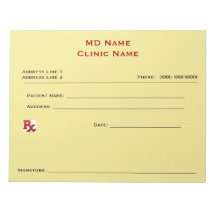
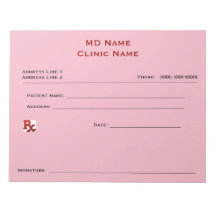

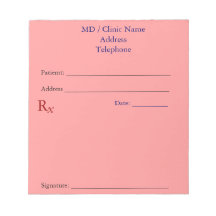
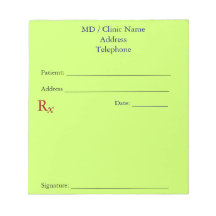
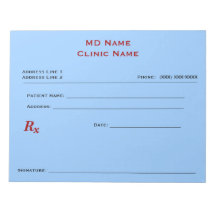
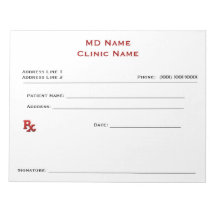
Thanks for the great post.This is really great source of traffic, and very thanks for sharing this type of information and surely its going to very easy for me after read this article.
ReplyDeleteCoinbase Support Number
This article is so great and informative... thanks for sharing this with all
ReplyDeleteCoinbase Support Number
What could be the best option to resolve the repayment issues in Cash App? " OPT Customer Service Number" is the best option for the users and they can ask for assistance at any time without any hassle. Call us Toll-Free number +1(855)504-2121
ReplyDeleteCash App Customer Care Number
We have technical experts present at the OPT customer service that can give you all the required answers than you may find from other references. Easy to get Zelle Support service and customer care Phone number.+1(855)-504-2278
ReplyDeleteZelle Customer Care Number
If you are looking for answers to all the queries that may trouble you, contact Cash App Customer Service or give a call on the cash app phone number. The technical specialist presents a Cash App Customer Service Number t the cash app customer service can give you required answers than you may find from other references. Get immediate support from the specialist at +1(855)504-2121
ReplyDeleteCash app Customer Service
Welcome to Coinbase Support Number, Our Support Team ready for your queries, if you have any queries such as online transaction, wallet recharge and some other issue you can call our toll free number. Our team provides the best solution in the world. +1(855)504-2315
ReplyDeletecoinbase Support Number
Zelle Support is online mobile wallet for an online transaction if any issue Get quick and accessible help from the executive at the Zelle Customer Service to solve all the problems related to your Zelle account. +1(855)-504-2278
ReplyDeleteZelle Customer Service Number
Google Pay is the platform for transferring the money from one account to another. It is one of the secure ways to do it without wasting any time. If you are facing some issue while using Google Pay like money transfer. So the best way to do it by contacting the Google Pay customer service number. +1-888-330-0764
ReplyDeleteGoogle Pay Customer Service